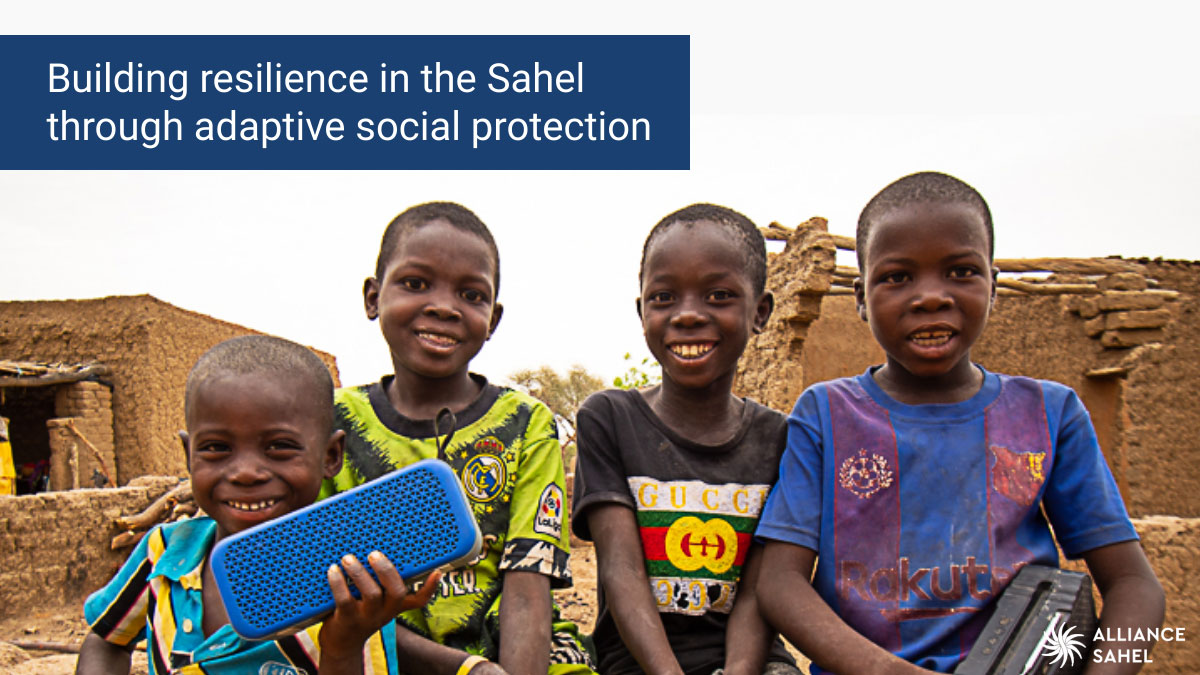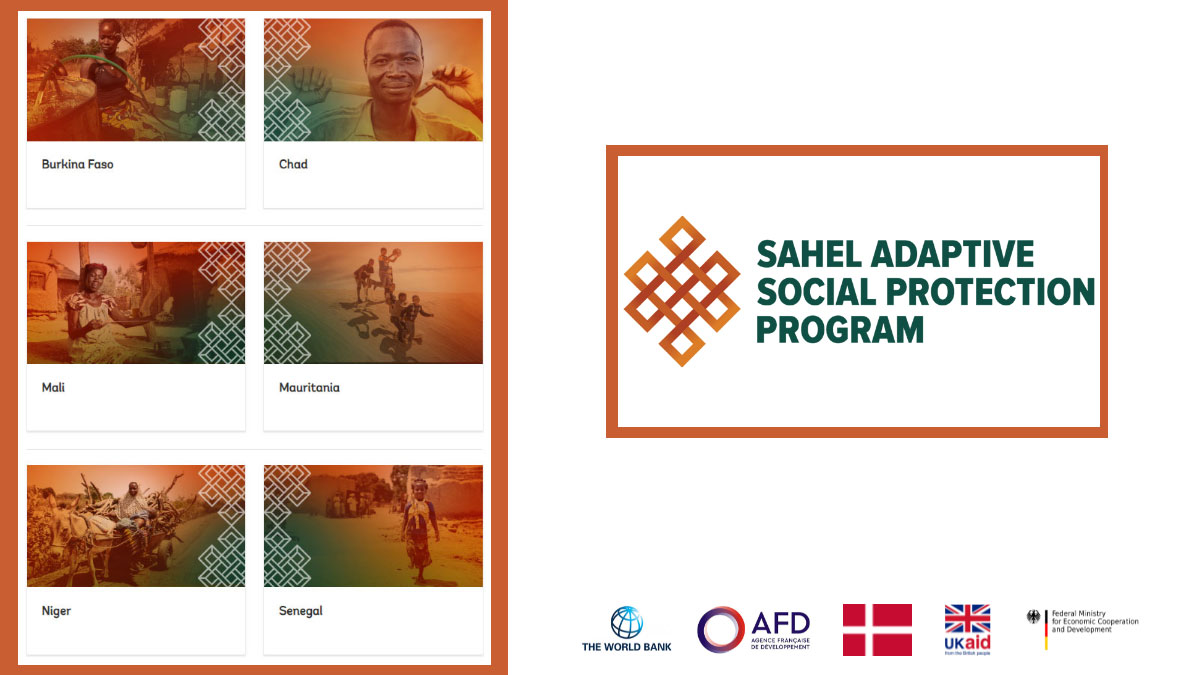Adaptive social protection in the Sahel: a vital preparation for times of crisis
The Sahel region is facing several crises related to climate change, conflicts and the impact of global shocks. These crises undermine jobs, food security, human capital and long-term development prospects. Extremely poor people are disproportionately and permanently affected. The Covid-19 pandemic demonstrated the need for governments to strengthen adaptive social protection systems, including by strengthening their delivery systems. These can be improved with data and technology, by expanding programme coverage and developing sustainable financing schemes. Sustainable poverty reduction and employment creation require innovative approaches to help poor people better manage shocks and crises.
Social protection was the focus of a meeting of the Alliance Sahel organised in parallel with the Spring Meetings of the World Bank and the IMF. More than 100 participants took part in face-to-face and virtual exchanges.
The meeting, chaired by Ousmane Diagana, brought together several ministers and national delegations from Sahelian countries as well as development partners. The session allowed for an exchange between senior policy makers and partners on the directions to be taken to strengthen national social protection systems.

Participants reiterated the importance of focusing on the climate change issues that catalyse shocks in the Sahel. 13.5 million people could be living in poverty by 2050 due to climate change if adaptation measures are not taken.
The senior representatives of the Sahelian delegations drew the attention of the participants to some of the achievements of successful social protection programmes:
- Social protection projects build resilience for the most vulnerable people
- Technology helps, for example with transfers, which are faster and more accurate
- Cash transfer systems are essential to overcome ‘shocks’
- These social protection actions help to increase women’s income and improve their status
- A lasting impact on food security is noted
- Enhanced social cohesion
Challenges in Implementing Social Protection Programmes
The Sahelian delegations also shared the challenges to be overcome in the implementation of effective social protection programmes:
- In the Sahel, many beneficiaries are far away from cities, which poses challenges in reducing the physical transfer of money
- Difficulties in identifying beneficiaries to target the most vulnerable people
- The need to scale up social protection projects
- The contribution of beneficiaries to the society’s activity to ensure the sustainability of social protection systems
- Anchoring social protection in public policy and strengthening funding
We are in a period of crisis and uncertainty, which requires successful innovations to be scaled up.
Continue Actions to Support Adaptive Social Protection
At the conclusion of the event, Ousmane Diagana recalled that social protection programmes are not new to the Sahel. They remain extremely useful: evaluations have established the impact on consumption, on household capacity in the medium and long term. We are in a period of crisis and uncertainty, which requires successful innovations to be scaled up. To be inclusive, social security coverage must be effective throughout the territory of the countries.
Finally, development partners were invited to increase their efforts to integrate their support into national actions, and to continue coordination in support of adaptive social protection initiatives.
Over the past decade, Sahelian countries have introduced ‘adaptive’ social protection programmes (ASP). These programmes have been shown to have a significant impact on consumption, livelihoods and coping strategies. The members of the Sahel Alliance make joint efforts and coordinate themselves in the adaptive social protection sector.
For example, Germany, France, Denmark, the UK and the World Bank have supported Burkina Faso, Chad, Mali, Mauritania and Niger through the Sahel Adaptive Social Protection Programme (SASPP), which has reached nearly 9 million people since 2011. This support includes piloting productive inclusion programmes, developing early response programmes for droughts and floods or designing disaster risk financing mechanisms.
The members of the Sahel Alliance support 25 projects in the social protection sector.

Go further

